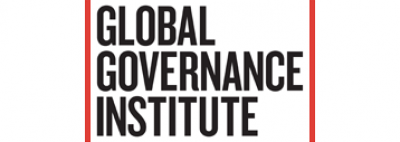Future of AIDS Think Tank Dialogue
24 January 2014
The GGI and the UCL Institute for Global Health co-hosted a Think Tank Dialogue on the future of the global heath and AIDS architecture.

AIDS and global health architecture must be responsive to the needs of people across the world, according to the Think Tank Dialogue that took place on 2 December 2014, as part of the UNAIDS and Lancet Commission consultations.
Key messages:
Participants called for new approaches to address the emerging health burdens (including Non-Communicable Diseases) and the drivers of ill health-including the unhealthy lifestyles industries, as well as private health care providers.
- Concerted efforts should be made to ensure that the human right to health is realized and health inequality tackled.
- The global health architecture would benefit from the establishment of new independent accountability mechanisms which can undertake monitoring, review, and remedial activities
- The Commission was encouraged to identify the incentives and levers available to transform the architecture in a world where geo-political power is shifting, where Official Development Assistance (ODA) flows no longer exert a decisive influence, and where ideas play a more prominent role.
Participants said:
Mapping out a way towards ending AIDS and, more broadly, universal health provision will require the kinds of rigorous diagnostics on display at this multi-stakeholder meeting. I am pleased that UCL has been able to enter into partnership with the UNAIDS and the Lancet Commission on these issues.
David Coen, Director of UCL Institute of Global Governance
Poverty, inequality and the other major drivers of the emerging burdens of ill-health are global phenomena and we need a global health architecture that is equipped to deal with the determinants of ill-health as well as the provision of equitable and accessible health care.
Sarah Hawkes, UCL Institute of Global Health
It is crucial that priority is given to establishing an independent accountability arrangement within the global health architecture. The presence of an independent multi-sectoral body in the global health sector able and willing to hold stakeholders to account for their performance is long overdue.
Paul Hunt, Former UN Special Rapporteur for the Right to Health
The debate on future global health architecture exposes a range of perspectives, from denialists to defeatists, from pluralist to utopians…I think we need more pragmatists who can identify concrete, politically feasible, incremental steps to bring greater coherence, participation and independent accountability.
Participants:
The dialogue was attended by officials from the Rockefeller Foundation, WHO, the Partnership for Maternal, Newborn & Child Health, DFID and The Lancet, as well as leading academics, practitioners and civil society representatives in the field of global health. Presentations were given by Dr Kent Buse (UNAIDS), Dr Simon Rushton (University of Sheffield), Dr Helena Legido-Quigley (London School of Hygiene and Tropical Medicine), and Dr Sarah Hawkes (UCL).
The dialogue was organised around three round table sessions:
- Taking stock: Opportunities and lessons learnt from the AIDS response for global health governance
- Modernising the global heath and AIDS architecture: law, institutions, and public-private authority
- Pathways to enhancing coherence of the global health architecture
Deliberations were informed by the ongoing work of the UNAIDS and Lancet Commission's third Working Group on the AIDS and health architecture.
Outcomes
The outcome of the dialogue will inform the ongoing work of the UNAIDS and Lancet Commission's third Working Group and a response document has been relayed to its Chair, Helen Clark, UNDP Administrator.
 Close
Close


